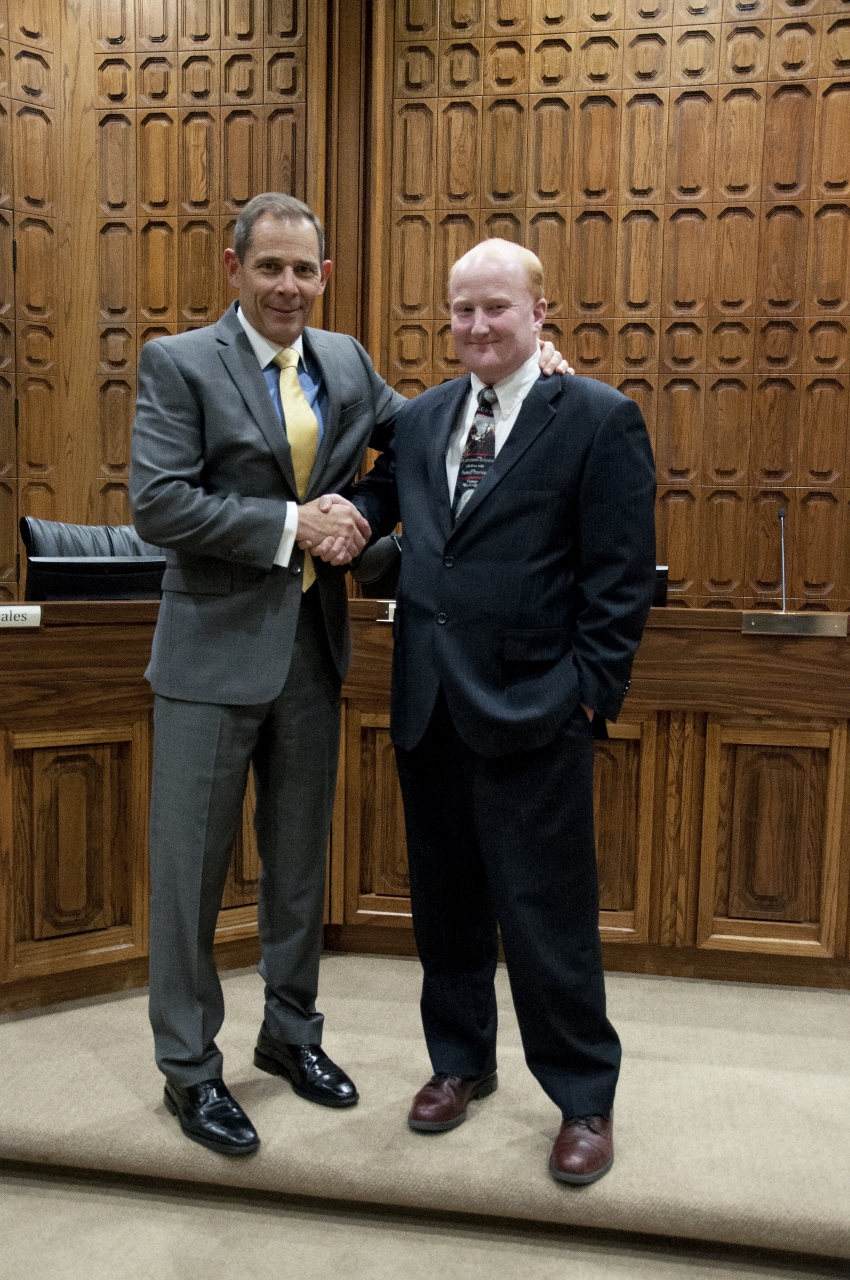[soundslides width=”620″ height =”533″ id=”342953″]

Incumbent Mayor John Curtis and opponent Jason Christensen expressed their views for the future of Provo during a televised debate on Wednesday night in preparation for Provo’s municipal elections on Nov. 5.
Both candidates are vying for the opportunity to represent the citizens of Provo for the next four years, and they passionately presented their plans for the city as they addressed those gathered in the city council chambers.
Jason Christensen said he had no initial desire to run for mayor, but his faith and encouragement from others prompted him to do so.
“I’ve confirmed with the Lord himself… and he answered yes,” Christensen said during his speech. “Since that time, I’ve seen countless doors open and miracles happening to me. I never imagined it would get this far.”
“All is not well in Zion,” Christensen said in his opening remarks. He repeated this idea several times during the debate, claiming the city has abused taxes on the utility bill, violated property rights and has become oversized.
“I’m looking to reduce the size of government and restore individual liberties and individual freedoms,” Christensen said.
Mayor Curtis ran on a platform of safety, prosperity and unity when he ran for mayor in 2009. He restated these goals during his opening remarks and cited the accomplishments the city has made in these regards.
“Last year, Provo metro area was designated the second safest metro area in the entire United States and crime dropped by 13 percent in the inner-city,” Curtis said. “Our economy here in Provo is recognized nationally as the best economy in the entire United States. Forbes Magazine ranked Provo, Utah the number one place for business and careers in the entire United States.”
He also reminded the people that Provo is only the third city in America to be home to Google Fiber, saying it has made Provo the “envy of the entire world.”
“I have found during the last four years that when we work together as an administration, city council, city staff, and employees and residents we can do anything we put our minds to,” Curtis said. “Amazing things have been accomplished by these groups working in harmony for the best will of our city.”
One major focus of the debate was Provo’s relationship with the BYU population.
“We love our students here in Provo, they may frustrate us from time to time, but we love them,” Curtis said. “Our relationship with both Brigham Young University and UVU is critical.”
The mayor described the efforts his office has made to reach out to the student population through social media and addressed an issue that has affected many students on campus.
“A major major issue to our students, I would dare say the most dominant issue to them is the parking and towing situation in our city,” Curtis said. “That’s something that I’ve taken on as a personal challenge to try and improve that situation and make it more reasonable for our students in a way that makes sense for our property owners as well.”
Christensen said that after attending BYU wards and going on dates on campus, he has found it to be a great environment. He did however criticize the city for not allowing more parking at a complex recently built south of campus.
“They only allowed 700 parking stalls,” Christensen said. “Why not push for the worst case scenario of 1000 parking stalls just in case the students that rent there will have a car? Why dictate to them what they can and cannot drive and can and cannot do? Time for a little bit more common sense in city government in planning apartment complexes.”
After Christensen’s comment, Curtis replied in jest to something that Christensen said during his response.
“My mind has been set on something that Mr. Christensen said and I just have to reflect back to it because I want to be very clear, that my intention to improve relationships to BYU has nothing with do with my willingness to date BYU students.”
When asked about dwindling federal and state funds for city infrastructure such as road repair and replacement, the candidate views differed. Christensen used his response time to endorse the free market system and promote small business, without addressing the question directly.
“It’s simple, we need to restore the principles of the free market,” Christensen said. “We need to buy, sell, try and fail, and fail has been stripped out. We’ve been subsidizing Google, we’ve been subsiding corporations, and forgiving the debt to NuSkin for 1st West. We need to also reduce the small business fees. Allow small business to flourish. Small business is the backbone of America.”
Curtis said that the current cost of road maintenance is $4 million per year and with Provo’s current revenue source, the city is $3 million short in covering that cost.
“One of the things I’m very proud of is working hard with the city council, the residents and the employees,” Curtis said. “The city has been very creative in their approach to funding. The funding proposed… will actually change the way that we fundamentally pay for road maintenance. We will no longer be dependant on debt, paying interest, but will move to a pay as you go formula, which is remarkable.”
Curtis said that the same three dollars that Provo households are currently paying for road maintenance will pay greater dividends under the new plan, yielding $4 million instead of the current $1 million. Lack of interest payments and a spread of the cost will be spread across all entities, including non-profits.
For more election information including polling hours and locations, visit provo.org.




